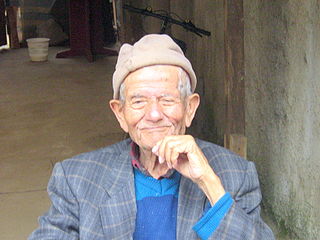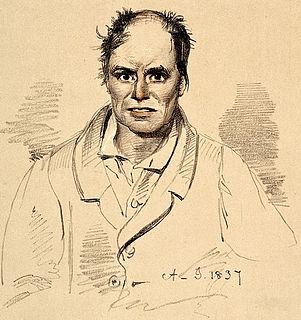Related Research Articles
Quality of life (QOL), according to Britannica, is the degree to which an individual is healthy, comfortable, and able to participate in or enjoy life events. The World Health Organization (WHO) defines QOL as "an individual's perception of their position in life in the context of the culture and value systems in which they live and in relation to their goals, expectations, standards and concerns". Standard indicators of the quality of life include wealth, employment, the environment, physical and mental health, education, recreation and leisure time, social belonging, religious beliefs, safety, security and freedom. QOL has a wide range of contexts, including the fields of international development, healthcare, politics and employment. Health related QOL (HRQOL) is an evaluation of QOL and its relationship with health.

The term happiness is used in the context of mental or emotional states, including positive or pleasant emotions ranging from contentment to intense joy. It is also used in the context of life satisfaction, subjective well-being, eudaimonia, flourishing and well-being.

Depression is a state of low mood and aversion to activity. It can affect a person's thoughts, behavior, motivation, feelings, and sense of well-being. The core symptom of depression is said to be anhedonia, which refers to loss of interest or a loss of feeling of pleasure in certain activities that usually bring joy to people. Depressed mood is a symptom of some mood disorders such as major depressive disorder or dysthymia; it is a normal temporary reaction to life events, such as the loss of a loved one; and it is also a symptom of some physical diseases and a side effect of some drugs and medical treatments. It may feature sadness, difficulty in thinking and concentration and a significant increase or decrease in appetite and time spent sleeping. People experiencing depression may have feelings of dejection, hopelessness and, sometimes, suicidal thoughts. It can either be short term or long term.

Gratitude, thankfulness, or gratefulness, from the Latin word gratus "pleasing, thankful", is a feeling of appreciation felt by and/or similar positive response shown by the recipient of kindness, gifts, help, favors, or other types of generosity, towards the giver of such gifts.

Gross National Happiness, or sometimes called Gross Domestic Happiness (GDH), is a philosophy that guides the government of Bhutan. It includes an index which is used to measure the collective happiness and well-being of a population. Gross National Happiness Index is instituted as the goal of the government of Bhutan in the Constitution of Bhutan, enacted on 18 July 2008.

Peter Richard Grenville Layard, Baron Layard FBA is a British labour economist, currently working as programme director of the Centre for Economic Performance at the London School of Economics.
Public health surveillance is, according to the World Health Organization (WHO), "the continuous, systematic collection, analysis and interpretation of health-related data needed for the planning, implementation, and evaluation of public health practice." Public health surveillance may be used to track emerging health-related issues at an early stage and find active solutions in a timely manner. Surveillance systems are generally called upon to provide information regarding when and where health problems are occurring and who is affected.
Happy life expectancy (HLE) is calculated by multiplying life expectancy by a happiness index. The first uses life expectancy at birth. The happiness index is the average appreciation of life from the world databases of happiness.

Jonathan David Haidt is an American social psychologist, Professor of Ethical Leadership at New York University Stern School of Business, and author. His main areas of study are the psychology of morality and moral emotions.
Edward F. Diener is an American psychologist, professor, and author. Diener is a professor of psychology at the University of Utah and the University of Virginia, and Joseph R. Smiley Distinguished Professor Emeritus at the University of Illinois, as well as a senior scientist for the Gallup Organization. He is noted for his research over the past thirty years on happiness, including work on temperament and personality influences on well-being, theories of well-being, income and well-being, cultural influences on well-being, and the measurement of well-being. As shown on Google Scholar as of March 2020, Diener's publications have been cited over 220,000 times.

Well-being, also known as wellness, prudential value or quality of life, refers to what is intrinsically valuable relative to someone. So the well-being of a person is what is ultimately good for this person, what is in the self-interest of this person. Well-being can refer to both positive and negative well-being. In its positive sense, it is sometimes contrasted with ill-being as its opposite. The term "subjective well-being" denotes how people experience and evaluate their lives, usually measured in relation to self-reported well-being obtained through questionnaires. Sometimes different types of well-being are distinguished, like mental well-being, physical well-being, economic wellbeing or emotional well-being. Well-being plays a central role in ethics since what we ought to do depends, at least to some degree, on what would make someone's life go better or worse. According to welfarism, there are no other values besides well-being.

In public health, social distancing, also called physical distancing, is a set of non-pharmaceutical interventions or measures intended to prevent the spread of a contagious disease by maintaining a physical distance between people and reducing the number of times people come into close contact with each other. It usually involves keeping a certain distance from others and avoiding gathering together in large groups.
The traits of extraversion and introversion are a central dimension in some human personality theories. The terms introversion and extraversion were introduced into psychology by Carl Jung, although both the popular understanding and current psychological usage vary. Extraversion tends to be manifested in outgoing, talkative, energetic behavior, whereas introversion is manifested in more reflective and reserved behavior. Jung defined introversion as an "attitude-type characterised by orientation in life through subjective psychic contents", and extraversion as "an attitude-type characterised by concentration of interest on the external object".
A hedonometer or hedonimeter is a device used to gauge happiness or pleasure. Conceived of at least as early as 1880, the term was used in 1881 by the economist Francis Ysidro Edgeworth to describe "an ideally perfect instrument, a psychophysical machine, continually registering the height of pleasure experienced by an individual."
Eric Liang Feigl-Ding is an American public health scientist who is currently a Senior Fellow at the Federation of American Scientists in Washington DC. He was formerly a faculty member and researcher at Harvard Medical School and Harvard T.H. Chan School of Public Health. He is also the Chief Health Economist for Microclinic International. His research and advocacy have primarily focused on systematic reviews & meta-analysis, obesity, cancer prevention, and drinking water safety. Feigl-Ding is a Paul and Daisy Soros Fellow, and a World Economic Forum Global Shaper.

Psychological or behavioral dependence on social media platforms can result in significant impairment in an individual's function in various life domains over a prolonged period. This and other relationships between digital media use and mental health have been considerably researched, debated, and discussed among experts in several disciplines, and have generated controversy in medical, scientific, and technological communities. Research suggests that it affects women and girls more than boys and men and that it varies according to the social media platform used. Such disorders can be diagnosed when an individual engages in online activities at the cost of fulfilling daily responsibilities or pursuing other interests, and without regard for the negative consequences.
Subjective well-being (SWB) is a self-reported measure of well-being, typically obtained by questionnaire.

Christopher John MacRae Whitty is a British physician and epidemiologist who serves as the Chief Medical Officer for England (CMO), Chief Medical Adviser to the UK Government, Chief Scientific Adviser (CSA) to the Department of Health and Social Care, Head of the National Institute for Health Research (NIHR) and Gresham Professor of Physic.

The COVID-19 pandemic in the U.S. state of Vermont is part of an ongoing worldwide viral pandemic of coronavirus disease 2019, a novel infectious disease caused by severe acute respiratory syndrome coronavirus 2.
Peter Sheridan Dodds or Peter Dodds is an Australian applied Mathematician. He is the director of the Vermont Complex Systems Center and Professor at the University of Vermont's Department of Mathematics and Statistics. He has collaborated in several researches related to big data problems in areas as language, stories, sociotechnical systems, Earth science, biology, and ecology. With Chris Danforth, he co-runs the Computational Story Lab, the MassMutual Center of Excellence in Complex Systems and Data Science, and together, they developed the hedonometer.
References
- 1 2 "Can people's tweets help find coronavirus outbreaks?". News. 1 May 2020. Retrieved 30 October 2020.
- ↑ "Chris Danforth". Chris Danforth. Retrieved 30 October 2020.
- ↑ "Chris Danforth". www.case.org. Retrieved 30 October 2020.
- ↑ Bakuli, Ethan. "UVM 'happiness calculator' research highlighted in popular Reply All podcast". The Burlington Free Press. Retrieved 30 October 2020.